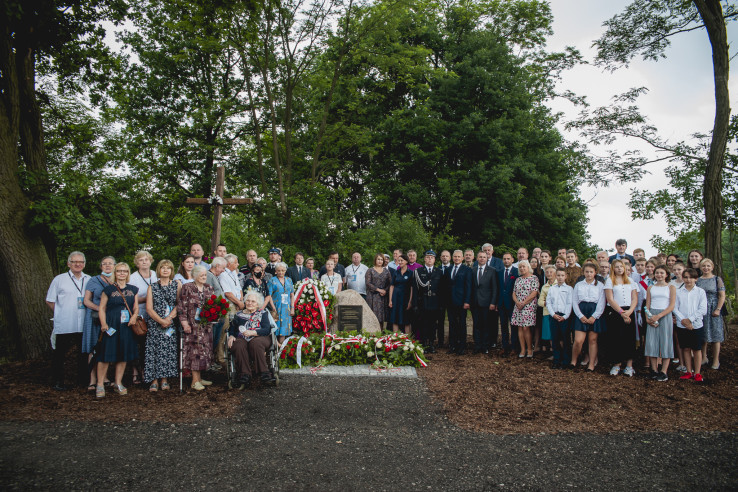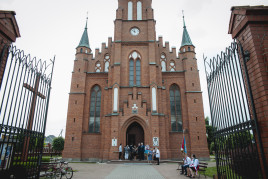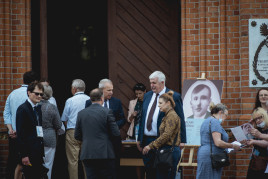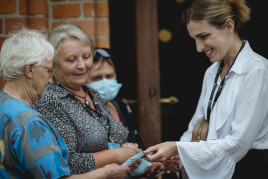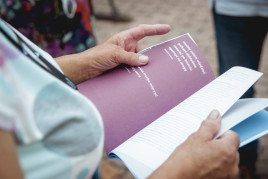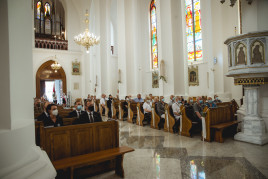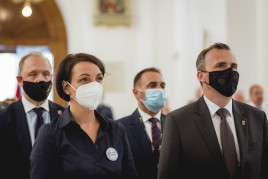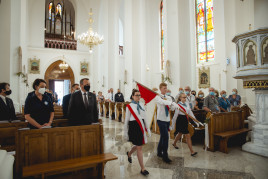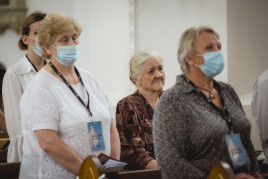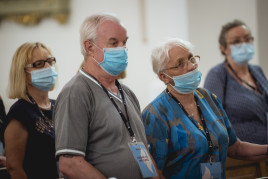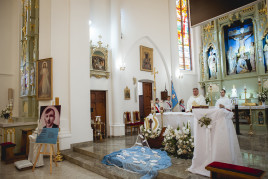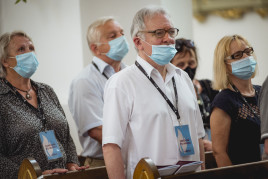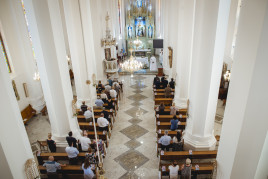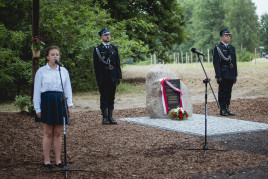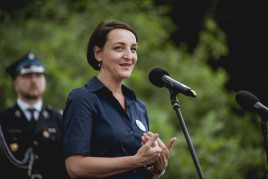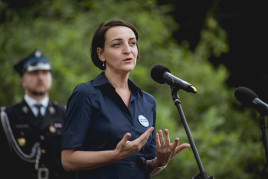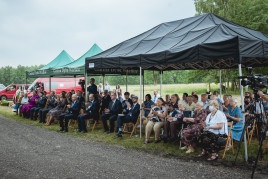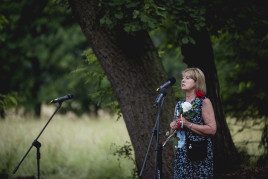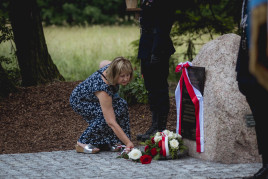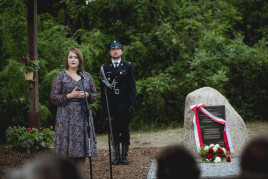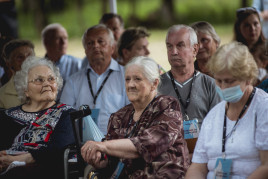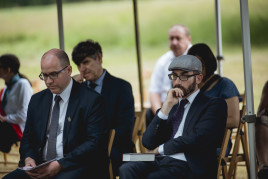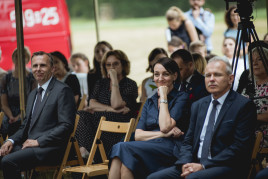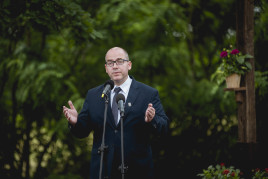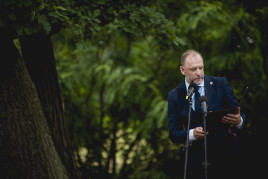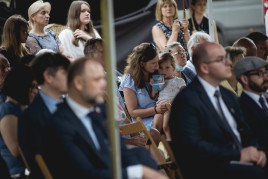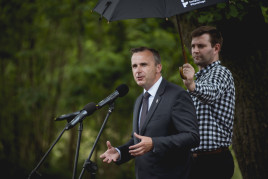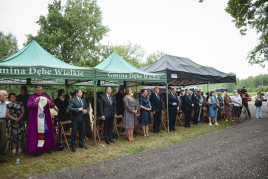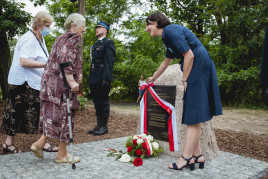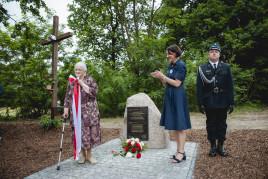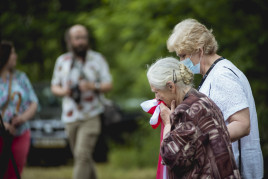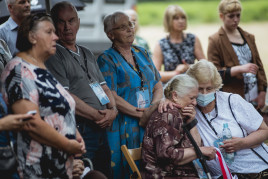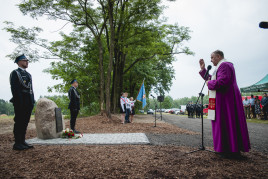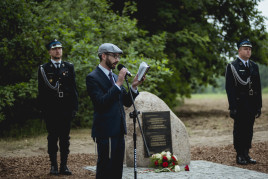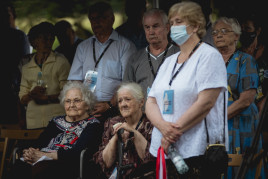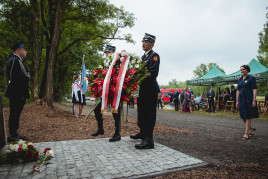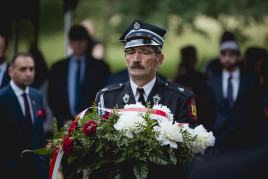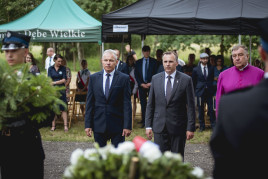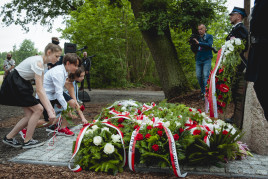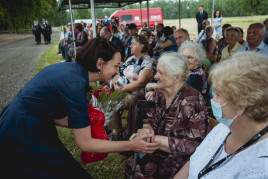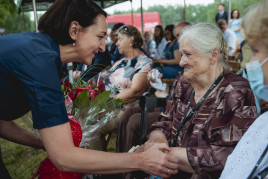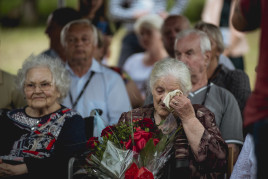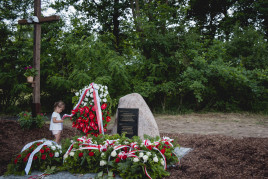Tribute to Bolesław Książek - Instytut Pileckiego
Tribute to Bolesław Książek
The Pilecki Institute honored the memories of Bolesław Książek and Idel, a Jewish boy whom he protected, both of whom were murdered by the Germans on 12 May 1943.
German gendarmes found Idel’s hiding place during a search of the Książek farm. They dragged him out and then herded him and the beaten Bolesław Książek toward the nearby forest. It was there, about a kilometer from the farm, that the execution took place. German military policemen murdered Bolesław Książek with several shots to the back of his head. Idel died with him.
The Germans agreed to bury Bolesław Książek in the cemetery in nearby Dębe Wielkie. Idel’s body was left where he had been shot. After the tragic events in Cezarów, Aleksandra Książek went to stay with relatives out of fear of a reprisal. Only after the war did she return to her home, where she kept the farm together with her second husband until her death in 1982.
Bolesław’s relatives waited almost 80 years to recall and tell his story – not with fear, but with pride and emotion. The ceremony, during which the Pilecki Institute commemorated Boleslaw Książek and Idel, took place on 25 June. It began with a Holy Mass led by Father Sławomir Żarski in the Church of the Holy Apostles Peter and Paul in Dębe Wielkie.
Following the mass, a plaque commemorating Boleslaw Książek and Idel was unveiled at the intersection of Ekologiczna and Długa Streets in Olesin. Wojciech Kozłowski, director of the Pilecki Institute, stressed: “Bolesław Książek showed great courage, but also great responsibility – he did not want to give up his promise to defend life and take care of this young boy. He gave his word and the threat and danger was not a sufficient reason to break it.”
“About 10% of the 50 commemorated Poles have been declared ‘Righteous Among the Nations’, but this title is awarded mainly to those who survived. From the stories told by my family and from the experiences of others I learned that to rescue and survive is very different than to rescue and die for it. We cannot speak only of the ‘Righteous Among the Nations’. In the case of those who paid the ultimate price for such aid, orphaning their children, we speak of the ‘Called by Name’”, said Prof. Magdalena Gawin, Deputy Minister of Culture, National Heritage and Sport.
The event was co-organized by the Pilecki Institute, headed by Dr. Wojciech Kozłowski and Anna Gutkowska; the Ministry of Culture and National Heritage; the head of the Dębe Wielkie commune Krzysztof Kalinowski; and Antoni Jan Tarczyński, the starost of Mińsk.
